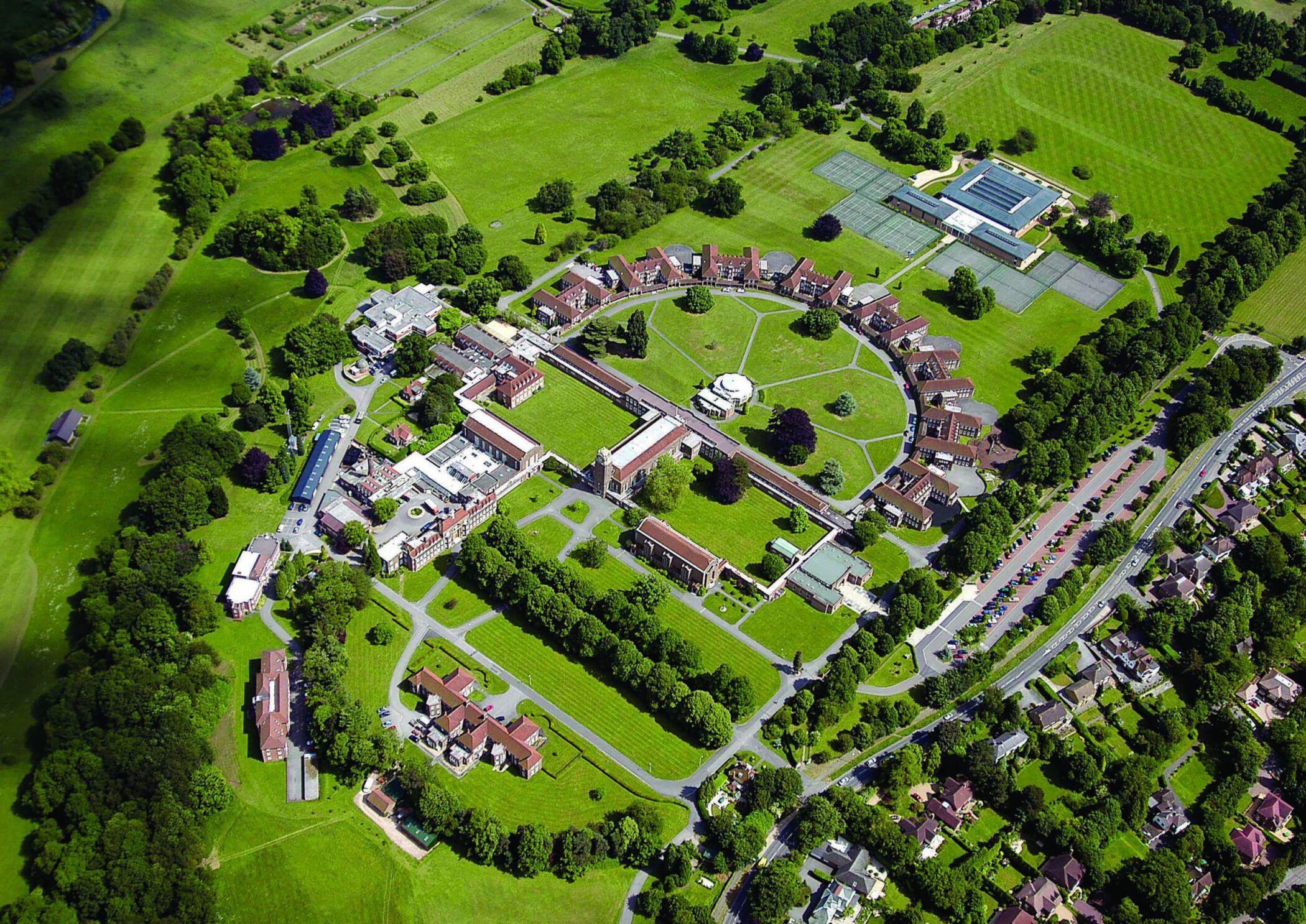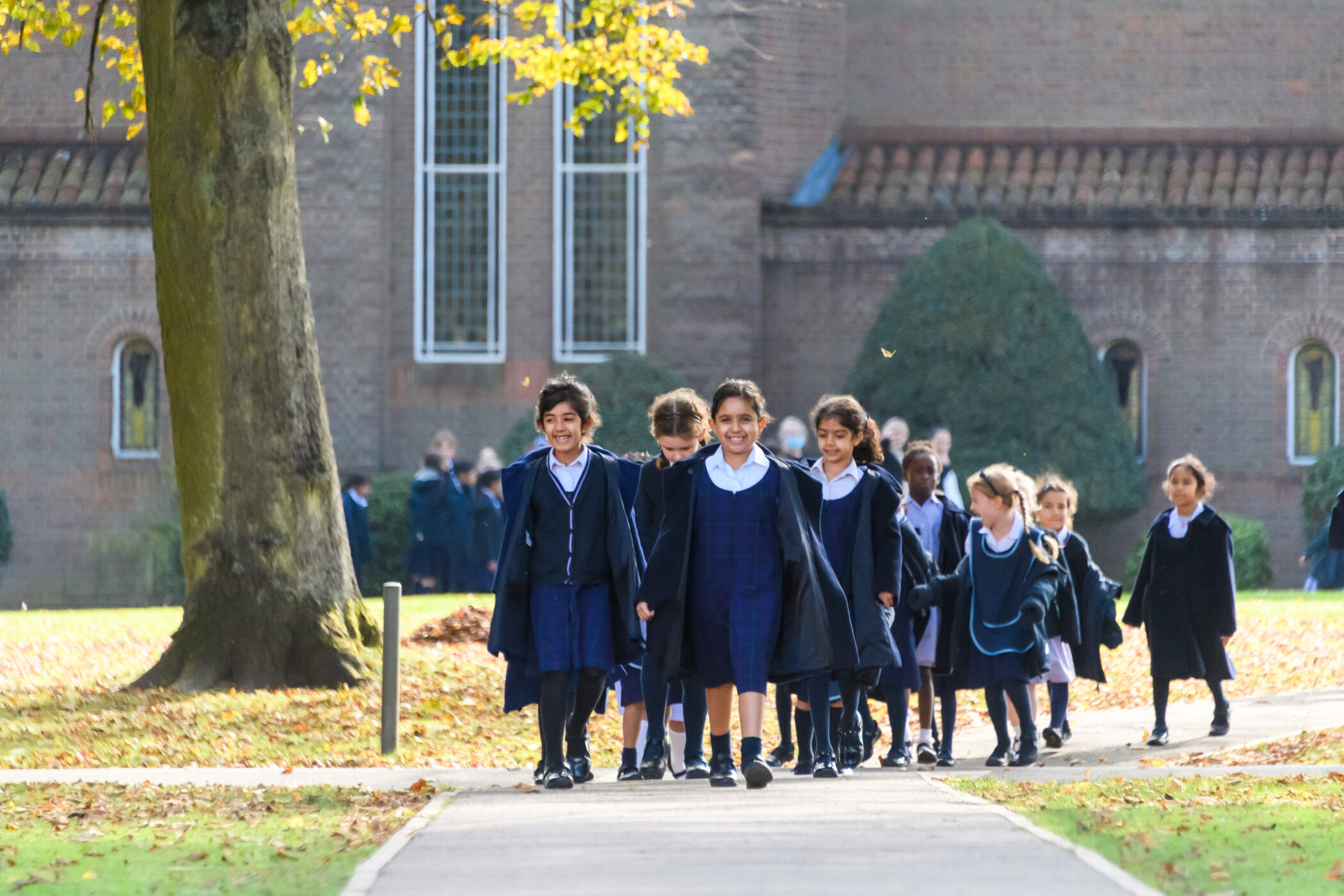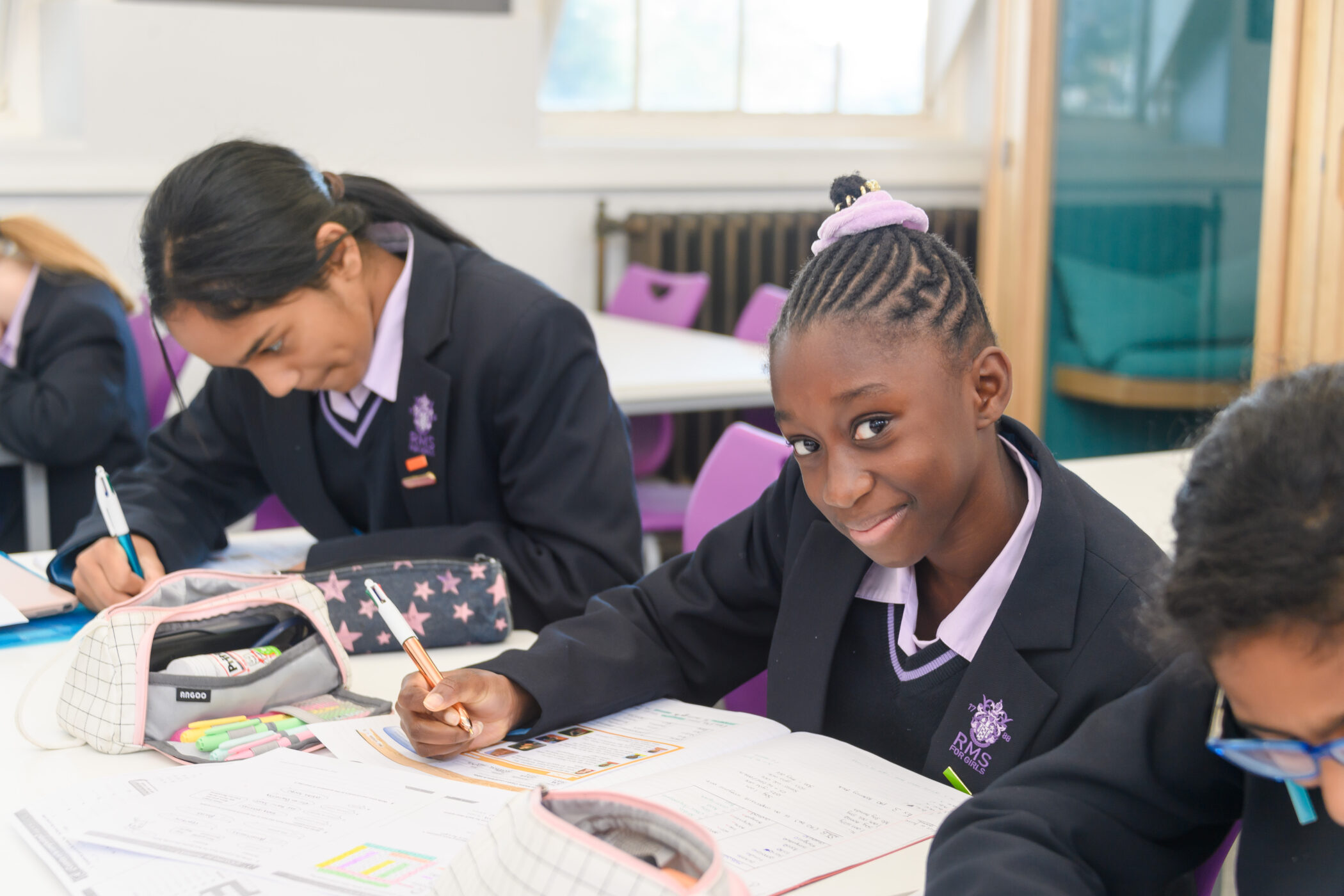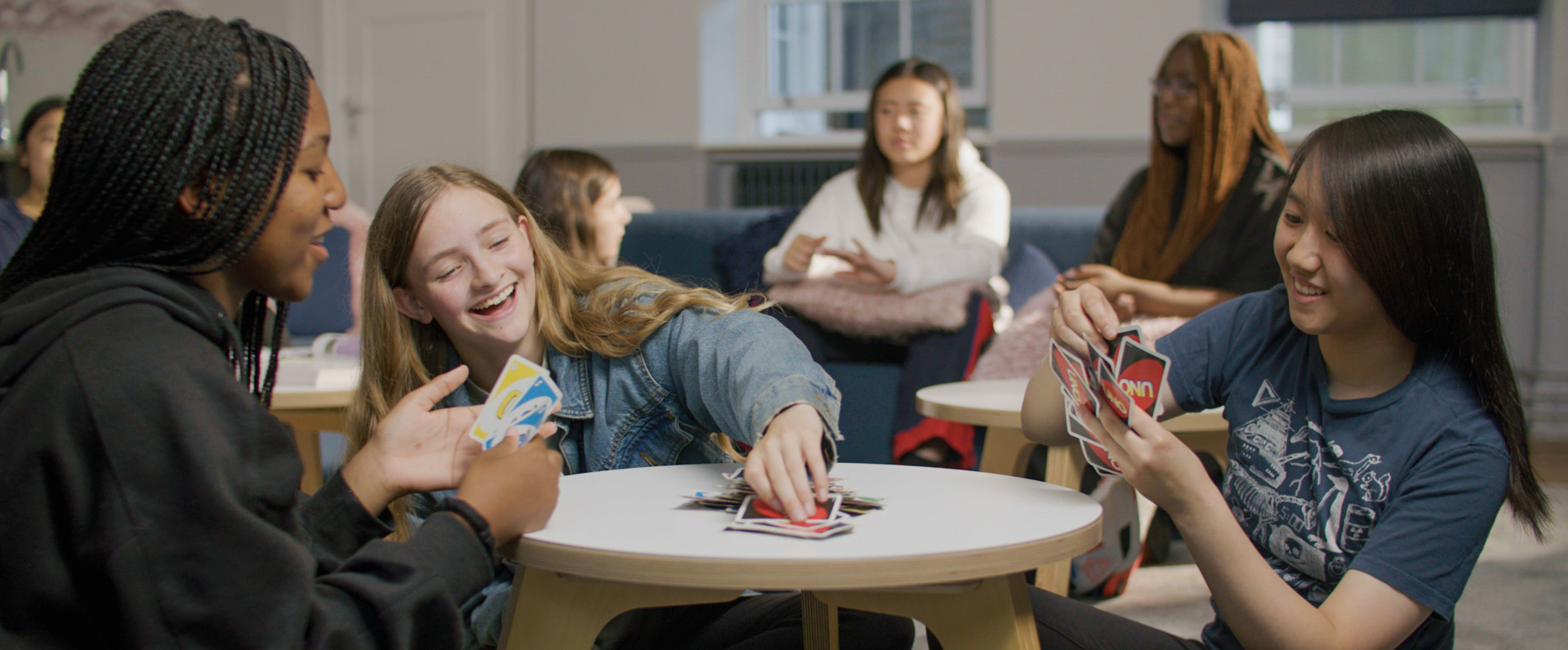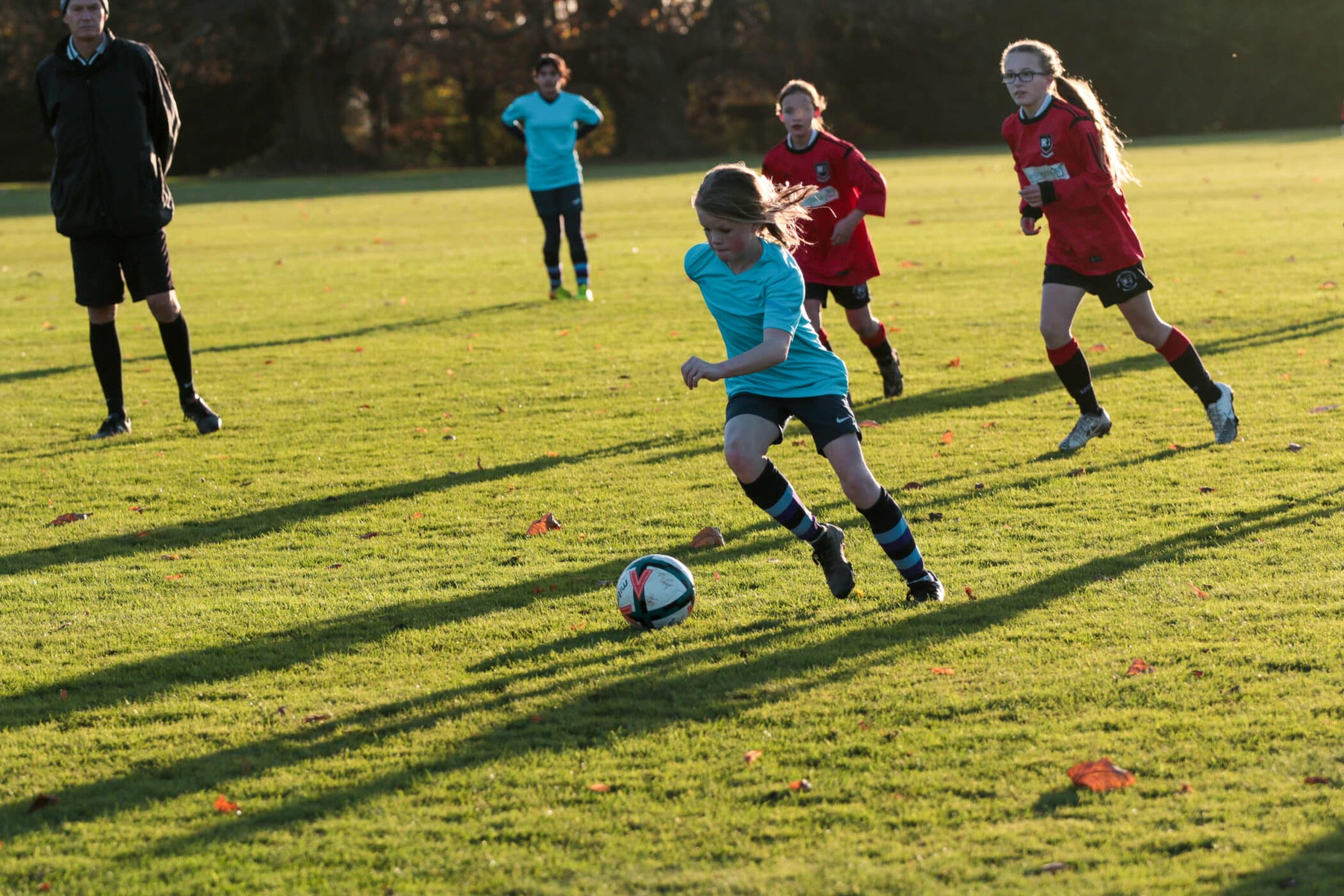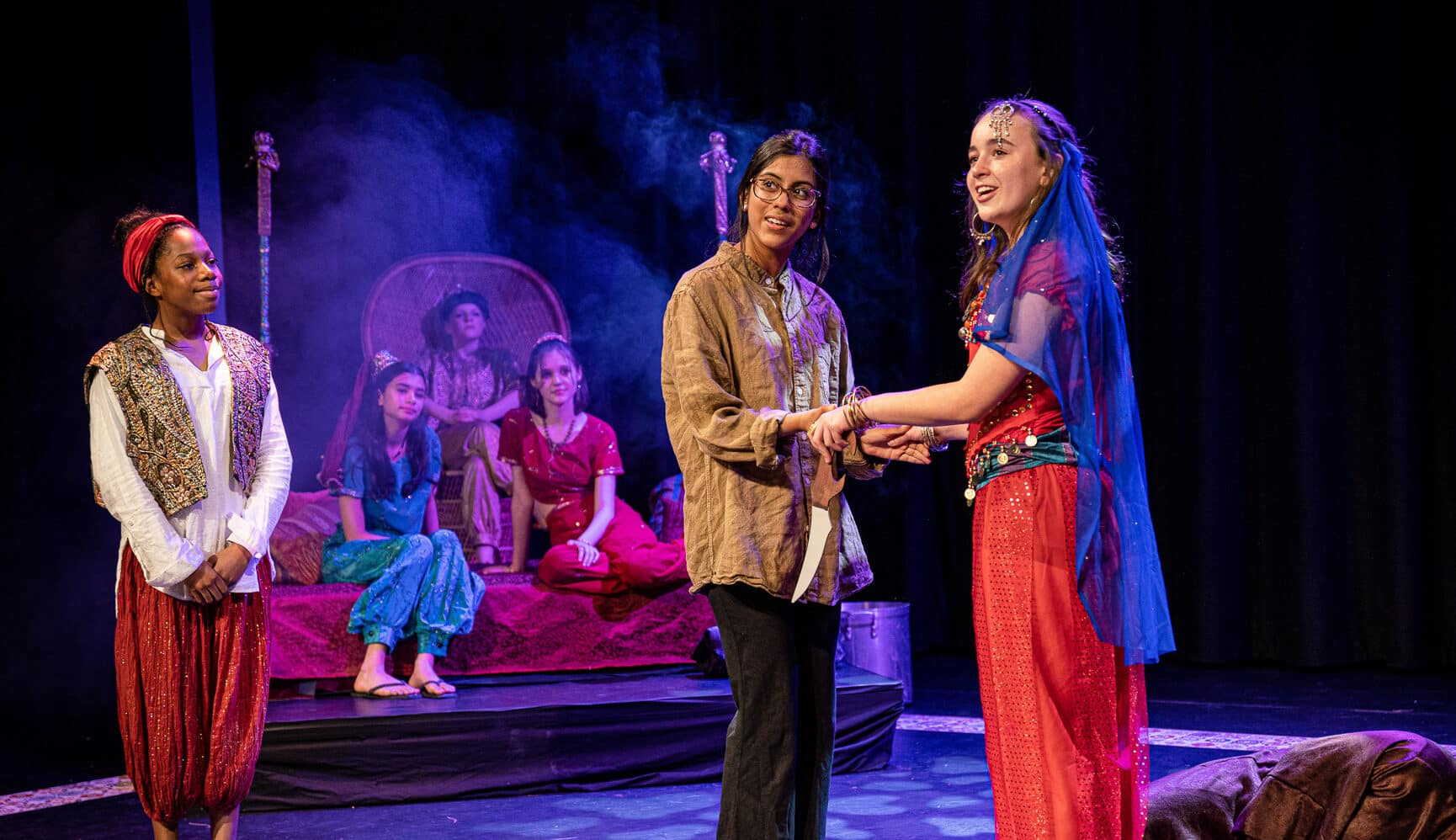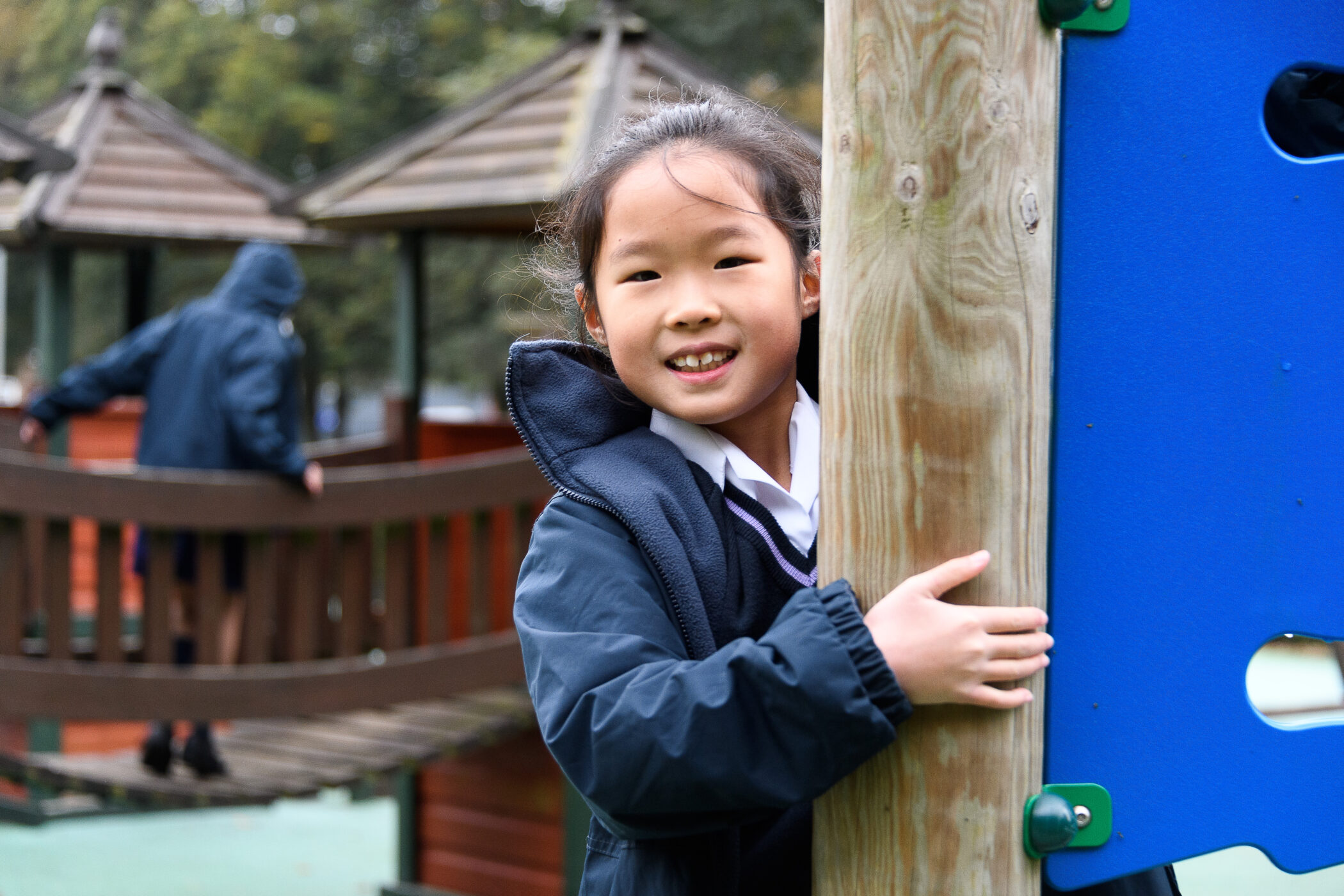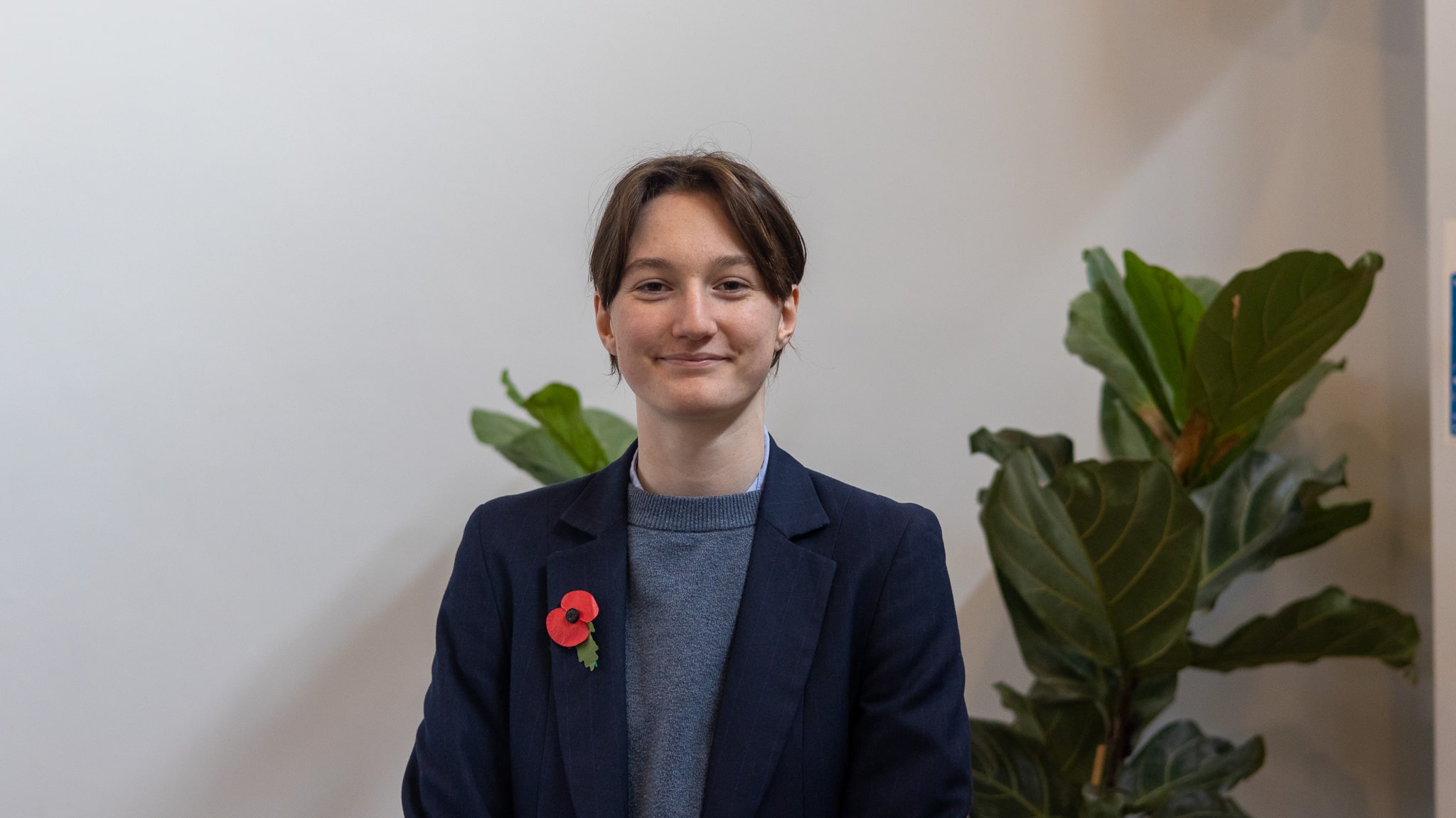We recently caught up with Year 12 student Lauren, a Digital Champion with Childnet, as she shared about her role as a ‘youth voice’ advocating for online safety.
Motivated by a desire to protect young internet users, Lauren discussed a recent call she participated in with a UN representative from the UN POP initiative.
Can you tell us more about your role as a Digital Champion with Childnet? What motivated you to become involved in this initiative?
The role itself enables me to be a ‘youth voice’ and representative for young people online. We often get to talk to companies (most notably Meta) and give them our feedback on specific questions, or give general feedback in regards to what we want from them or what we think would be beneficial for young people that they can do.
It’s all about keeping young people safe and bettering the online space for us mentally and physically, because we’re the ones that will inherit it- and tend to use it the most
- Lauren, Year 12
I became a digital leader at RMS when I was in Year 7 or 8 and heard about the role through someone on the digital leaders platform. I became a Digital Champion (DC) when I was in Year 9.
I have a younger brother who’s six years younger than I am, so he played a big part in my motivation to raise awareness on different e-safety topics so that young kids and other young people like him can grow up knowing how amazing the internet is, how to use it to benefit them and the dangers it can pose.
Can you tell us more about the call you had this week? Who was it with, what was the purpose and what kinds of topics were discussed?
I was on a call with a representative from the UN, she was working on the UN POP initiative under violence against young children. ‘POP’ stands for protection through online participation, so they are looking for information about how young people use the internet to keep themselves safe.
This spans from mental safety to physical safety and does include some topics such as domestic abuse, bullying, kidnapping and anything else that might put children in harm in the ‘real world’. There are some examples on the UN POP website.
Photos: Taken from Safer Internet Day event held at the BT Tower in 2022.
They wanted to know more about my role as a DC and how Childnet’s digital leaders program was such a good solution for keeping young children safe or for educating children on how to keep themselves safe. They asked about benefits and drawbacks of the digital leaders programme, along with the digital leaders programme and why I thought this young people led, peer to peer solution was so beneficial.
The main points I brought up were examples of how young people keep themselves safe in dangerous situations such as:
- Streaming their situation and location on platforms like Twitch or TikTok if they cannot call the police and getting commenters to do so.
- Using helplines like Childnet and forums/social media to get help or discuss something that is troubling them, this is particularly prevalent in the case of mental health issues.
- Using location apps like Life360 or social media apps like Facebook that have an emergency button on them that people can deploy to get help without calling 999 or 112 themselves. I suggested this should be a feature on more apps like Instagram or TikTok that young people use more often.
I also brought up topics like accessibility in the way information is presented and the effect of the digital divide, where young people cannot be protected through online participation physically, because they don’t have the technology. This was linked with younger children that may not have mobile devices also not benefitting or not knowing how to use them in the case of extreme emergencies.
As a young advocate for online safety, you’ve had the opportunity to interact with experts on this topic. What are some of the most pressing challenges you’ve identified when it comes to protecting the online safety of children and teenagers?
Getting young people engaged can be quite difficult, so the way in which companies and Childnet itself spreads their messaging is very important, it needs to be accessible too.
The nature of the internet can also be a very pressing issue, and the impact of that on mental health. The way things are spread on the internet is becoming faster and faster, especially with the rise of TikTok and BeReal, so misinformation is growing and so can negative impacts on mental health.
Keeping everyone feeling positive about the internet is so important, because that way we can teach young people to use the internet for their benefit and safety, like the UN POP initiative wants to show
What role do you believe students like yourself should play in the ongoing conversation about online safety? How can young people effectively contribute to making the internet a safer place?
I feel like students play a huge role in conversations about online safety, we have a very wide knowledge of topics being discussed over the internet, so we know what’s relevant. The main thing young people can do to contribute to making the internet a safer place is to keep conversations going.
The more discourse there is about how we can make the online space better for ourselves in terms of both physical and especially mental health, the more other people with instrumental power may get involved and listen, we’ve seen many examples of this in the past
Another thing we can do ourselves is to be respectful of each other, there’s a lot of hate and misinformation on the internet and it spreads very quickly, so especially with what’s going on in the world right now, try to spread more positivity than anything else.
In your experience, what are some of the most effective strategies for raising awareness about online safety among young people and engaging them in discussions about responsible internet use? Do you have any tips for other students who might want to become digital champions in the future?
The most pressing thing about raising awareness whether it’s through an assembly or some sort of social media post, is to centre it around engagement. If the way the information is delivered is not accessible or engaging, nothing will be learnt from it.
For example, every year the digital leaders in senior school provide lessons to the Year 5 and 6’s in Cadogan. Each year we try to strive more towards a workshop-type approach where it’s interactive and they’re contributing their own ideas. This way more conversations are started and ideas created along with good learning and raising awareness.
Photos: RMS Assembly on Internet Safety, 2022 (left) and a Safer Internet Workshop with Pre School Pupils in Cadogan House at RMS in 2022 (right).
I advise students wanting to become Digital Champions, or wanting to do any kind of work like this, to think about what issues really matter to them and how they can remedy them or advance in a positive direction towards a solution. This way, you can come up with ideas and solutions that will truly work, because of the interest and passion you have behind them.
For me, mental wellbeing is something I continually link within topics and bring up, along with positivity in the online space. I would also advise being as open as possible to new opportunities and always saying ‘yes’ when you can. Through DCs I’ve done interviews with the BBC and an article with my quotes published in the Independent.
Several years ago I would’ve said ‘no’, but I took my teachers’ and peers’ advice and now I’ve had so many brilliant opportunities
Is there anything else you would like to share about your role or the work that you do?
The work I do as DC is incredibly rewarding due to the opportunities we are presented with - much like the UN POP interview. They enable me to talk about the things I, and other young people, want to see change that would benefit our mental and physical wellbeing online
We get to talk directly to industry experts and the role is very youth focused. For example, Safer Internet Day (SID) 2023 was entirely focused and presented by young people so I feel this program that I’m involved with will continue to stay relevant and do good work in the years to come.
I would advise everyone to become involved in these types of conversations and the digital leaders program itself because it is beneficial in so many ways and is especially relevant nowadays with the rise of artificial intelligence.
